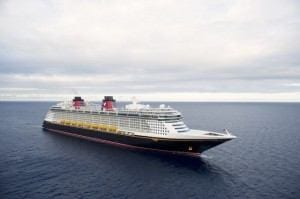Travel News
Cruise Scandal: Did Disney Cover up Employee Sexual Misconduct?
Last night, CBS affiliate WKMG Local 6 broke the story of what appeared to be a cover up of sexual misconduct committed by a staff member toward a young girl on board the Disney Dream cruise ship.
The incident occurred on August 5, 2012, when surveillance video captured an 11-year-old girl from Brazil being molested by a Disney employee in an elevator. The footage recorded the employee groping the child’s chest and forcibly kissing her.
The incident is not in dispute, but the now WKMG has been investigating the cruise line’s handling of the incident and the timing in question. At issue is a question of the country of jurisdiction and if Disney’s actions allowed one of its employees to escape U.S. prosecution.
The incident occurred just before 3 pm while the ship was docked in Port Canaveral, Florida. The victim promptly reported it to ship authorities, but the ship pulled out of port at 5:02 pm if nothing criminal had occurred.
The incident was not officially handled by law enforcement until August 7, when the former Disney employees confessed to the crime to the police in Nassau, Bahamas. At this point in the timeline, the victim’s grandmother had decided that she did not want the crime investigated.
WKMG alleges that if the incident had been reported in Florida, the employee would have been arrested for felony regardless of the victim’s family’s wishes. Felony charges for molestation are punishable by 25 years to life in prison.
Instead, Disney removed the subject from the ship and in the hands of Bahamas law enforcement, Disney arranged for the employee in question to return to India, as per standard employee contract provisions.
Following the WKMG report, we reached out to Rebecca Peddie, manager, public affairs of Disney Cruise Line which who offered the following statement:
“We take matters of this nature very seriously as the safety and security of our guests is our top priority. We notified all of the authorities, including the Port Canaveral Police Department, the Royal Bahamian Police Force, the Coast Guard and the FBI and took proper action. When we arrived in Nassau, the Royal Bahamian Police Force came aboard the ship for an investigation. Ultimately, the family chose not to take further action.”
While it’s not clear why WKMG chose to pursue this story nearly a year after the incident took place, it does open the conversation about cruise safety and crime reporting at sea. Should you be concerned about personal safety while you’re on a ship?
The International Council of Cruise Lines (now part of CLIA) once noted that the rate of sexual assault on cruise ships is said to be 17.6 per 100,000 as compared to a U.S. rate of 32.2 per 100,000. According to Ross Klein, founder of CruiseJunkie.com, sexual assault on cruises is approx 50 percent higher than on land.
Accurate reporting is a key issue. In 2010, Congress passed a law that was originally designed to create a national database of crimes that occur on cruise ships. However, the bill was watered down upon signing and the new act requires cruise lines to report all serious crimes aboard ships to the FBI, and not to a public database. The public database now only has records of crimes that are no longer under investigation. As an offshoot it appears that crime has been reduced more than it actually has been. The FBI had once had public record of more than 400 crimes, though now there are under a dozen in the public database.
In issues of jurisdiction as occurred with the Disney Dream, cruisers should be aware that of the law at sea is not necessarily U.S. law. Maritime law is complex but can best be understood by the 24-mile-rule. Within 24 miles of a port, a cruise ship is subject to the law of that land (i.e. U.S. or Bahamian law). On the open seas (aka high seas or international waters), the law of that ship is the law of the country whose flag the ship is flying. And the flag or nation of some popular cruise ships may surprise you.
Watch the full WKMG to see how the laws of jurisdiction impacted the incident onboard the Disney Dream.
Was this handled correctly by the law and by Disney? Sound off below!
For recent issues of cruise safety, check out:
- What Happens When a Cruise Passenger Goes Overboard?
- Is Carnival Cruise Cutting Corners: The Experts Weigh In
- Two Reasons to Buy Travel Insurance for Your Next Cruise
- Post Carnival Triumph: How Safe Is Your Cruise?
By Lily J. Kosner for PeterGreenberg.com














